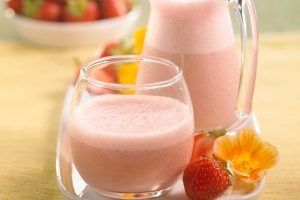Timing is everything

By June Martin, RD, CDE

Skipping meals on dialysis days
Studies have shown that most patients eat less on the days they dialyse; often entire meals are skipped. Even more concerning is that the hemodialysis treatment itself is catabolic: it can cause the body to break down muscle or use up energy stores. Even more concerning – as some studies have shown – is that this catabolic effect can last for hours after dialysis.

Why should you care?
There are many reasons to want to avoid malnutrition. We know that malnourished dialysis patients don’t do as well, end up in hospital more often and have a reduced quality of life. Sometimes I hear patients say to me – “I’ve been trying to lose weight for years and now I’m doing it without trying!” The concern with unintentional weight loss is that it is often primarily muscle or lean tissue loss – not the kind of weight most people want to lose. This kind of weight loss can lead to losing strength and endurance. And regaining muscle takes a lot of work.

It’s important to get enough nutrition EVERY day (including dialysis days). This means eating the meal before your treatment and (if allowed at your unit) having a high-protein snack on dialysis. Multiple studies have shown that taking a high-protein oral nutrition supplement during dialysis can help reduce the catabolic effect of dialysis. The same would be true for a high-protein snack, like one of our Frittata Muffins. It’s important to check with your dialysis clinic about rules around eating in the unit, and there are always some patients who can’t tolerate a large meal while dialysing. If you can’t eat while on dialysis then make sure to have a high-protein meal as soon as possible afterwards.
What about PD patients?

Make it personal!
Talk to your dietitian to help develop a personalized nutrition plan designed around your dialysis therapy, timing of treatments and your individual dietary needs.

